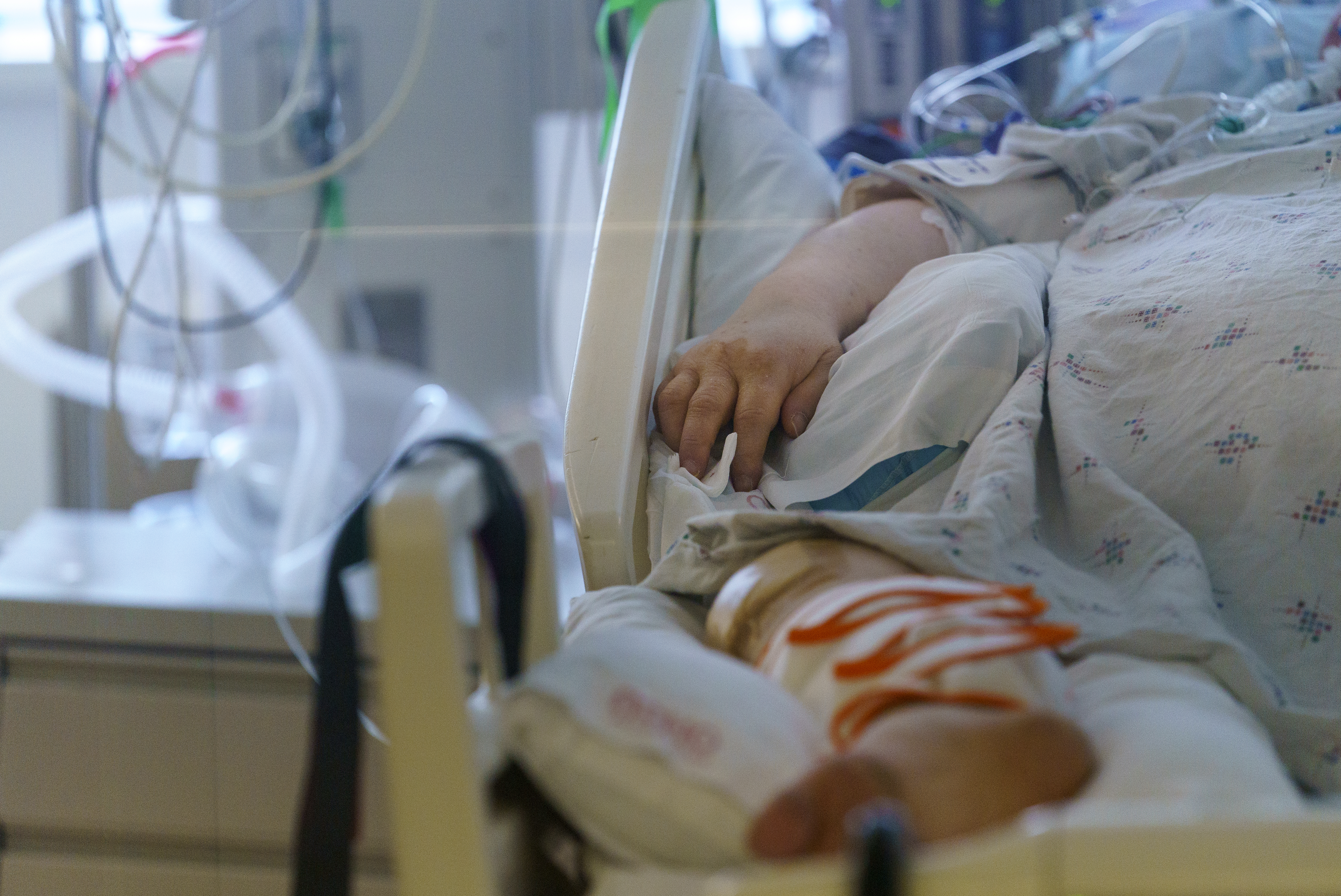
An Aug. 19, 2021, file photo of a patient critically ill with COVID-19 in Portland, Ore. New forecasts say a surge in infections linked to the omicron variant may result in fewer new hospitalizations than officials originally feared.
Kristyna Wentz-Graff / OPB
A new projection from Oregon Health and Science University shows COVID-19 hospitalizations peaking at about 1,250 in mid-February, driven by a surge in the omicron variant. That’s a significant drop from earlier forecasts.
OHSU data scientist Peter Graven had sounded alarms in a Dec. 17 press conference that an omicron surge could lead to between two and three times the number of COVID-19 patients hospitalized as there had been during the surge in the delta variant. His original model predicted a peak of between 3,000 to 2,000 hospitalizations linked to the pandemic, depending on the preventive steps Oregonians take in the coming months
OHSU officials are now revising their estimates. While forecasters say Oregon is poised to “experience an unprecedented wave of infections” from the omicron variant, they say it could lead to fewer hospitalizations than they initially believed.
Related: Omicron will cause more infections, but lower hospital rates, UW analysis shows
In a press release, OHSU said it’s adjusted its predicted peak hospitalization numbers from as many as 3,000 to about 1,250.
OHSU senior communications specialist Erik Robinson said the forecast “reflects changes in assumptions about omicron,” including new data from Europe that indicates a lower hospitalization rate from this variant than from other strains of the virus.
Graven’s most recent forecast uses data from Denmark that shows the hospitalization rate appears to be about 70% lower with omicron than from illness caused by the delta variant.
The Denmark study is part of a growing body of early research that suggests that the omicron coronavirus variant may be less likely to result in severe illness and lead to a hospital visit. Early estimates from researchers in London suggest people infected with omicron are 15% to 20% less likely, on average, to be hospitalized than those with the delta variant, and 40% to 45% less likely to stay in the hospital for one or more nights, as reported by The New York Times.
Graven predicts that if Oregonians take steps to reduce the spread of the virus — such as getting vaccinated and boosted — the surge in hospitalizations would be around what people saw during the surge in delta cases. Hospitalizations for the delta variant peaked at 1,187 people on Sept. 1.
If people don’t take steps to mitigate the spread of the virus, OHSU’s model predicts, as many as 1,700 people could be hospitalized by February. That has the potential to overwhelm Oregon’s hospitals.
According to the latest figures from the Oregon Health Authority, a total of 398 people are presently hospitalized due to COVID-19 across the state.
The state also reported 1,900 daily COVID-19 diagnoses Tuesday, the most new cases reported in a single day since September.
